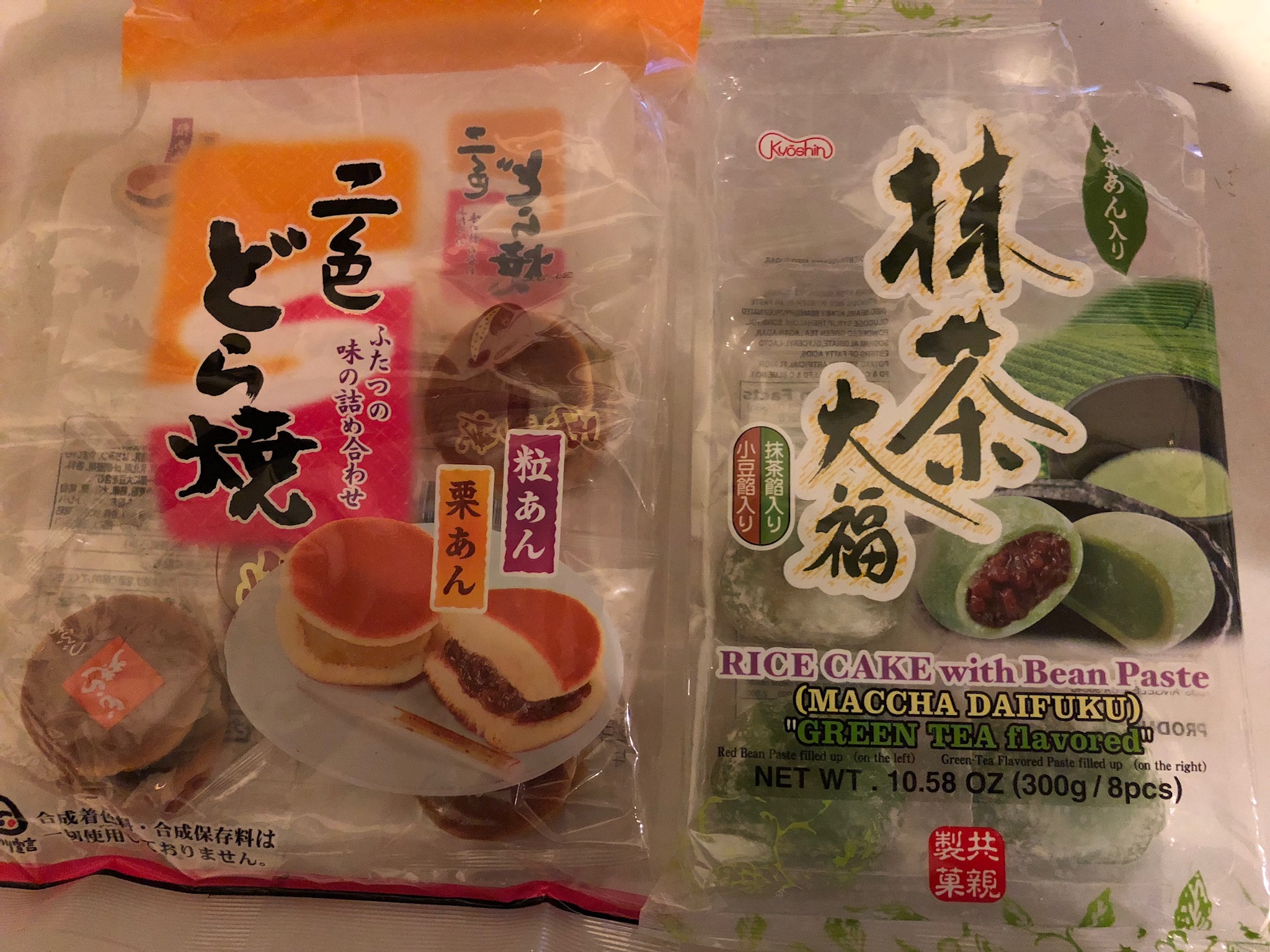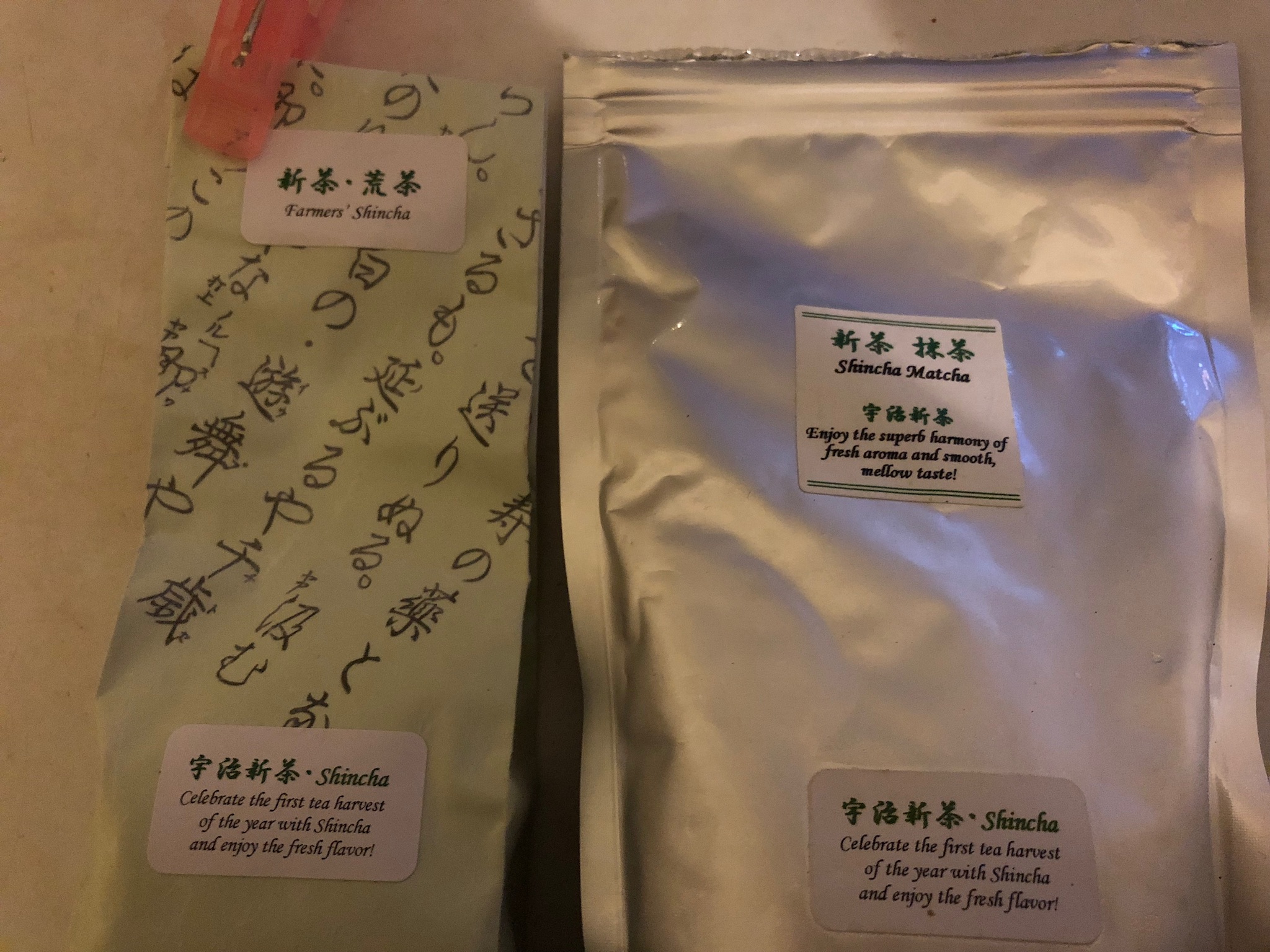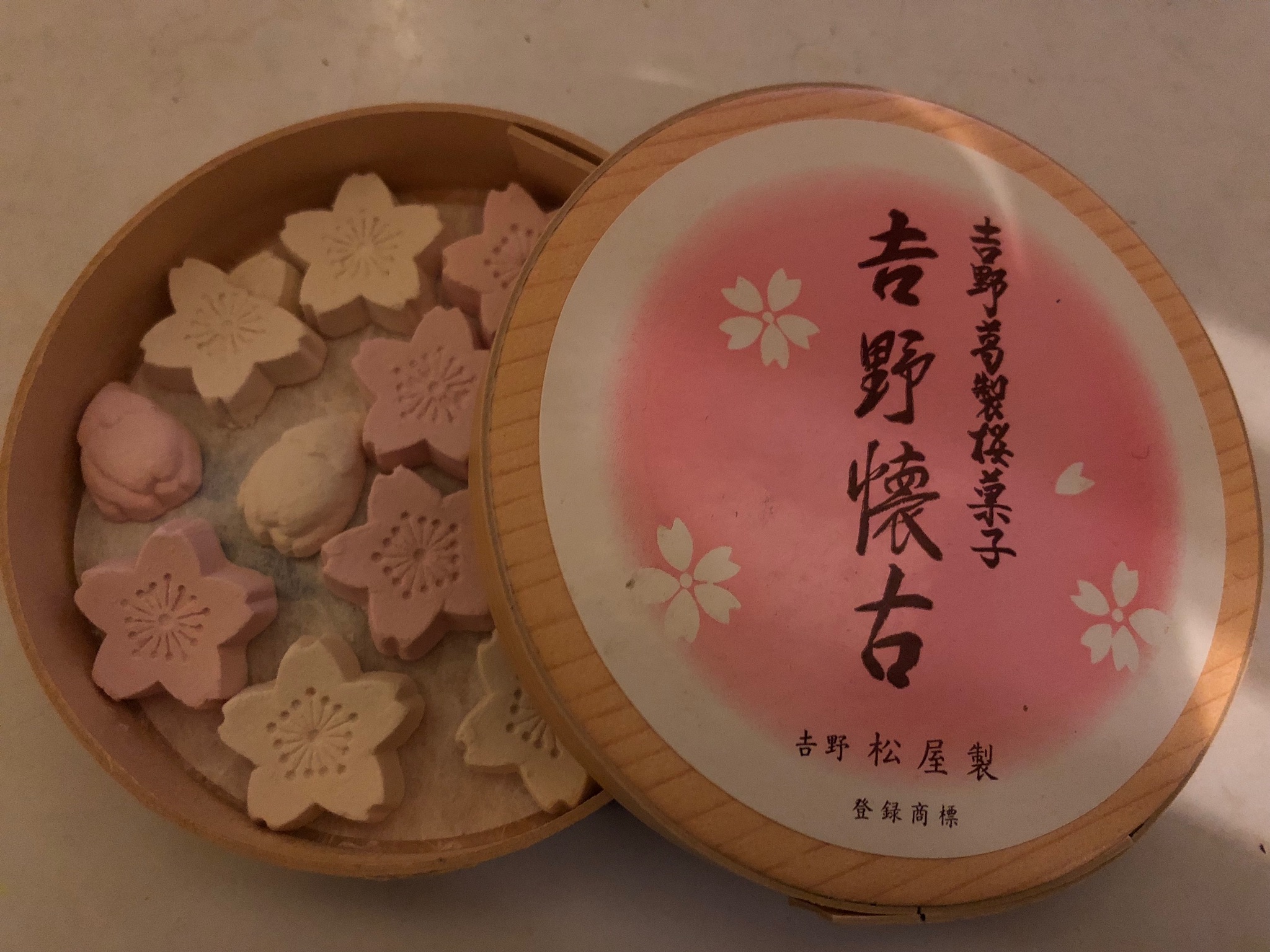Last night after the Sunday practice we sampled two varieties of shincha (the first green tea harvest of the year) as well as some Japanese sweets. A tatami mat was spread out on the dojo floor and we gathered around it. Present were Jon A. sensei, Brad, Billy, and myself.
Brad had provided one of the teas, a Farmer’s shincha which is minimally processed. It has the appearance (before brewing) of grass clippings and a nice fresh scent. More information about this tea is here:
https://www.hibiki-an.com/product_info.php/products_id/429
The other tea was a shincha maccha (aka matcha), which I supplied, which was finely ground and had a deep green color. More info:
https://www.hibiki-an.com/product_info.php/products_id/864
In the sweets department, Billy had brought melon bread to share and I had brought mini dorayaki, daifuku and ohigashi. The melon bread, dorayaki and daifuku were bought at either Daido or Seiwa (Houston area Japanese grocery stores). Japanese green tea is typically not sweetened, but rather a sweet is eaten first before sipping the tea. More information on ohigashi (ordered from Hibiki-An) here:
https://www.hibiki-an.com/product_info.php/products_id/759
The water boiler I brought boiled the fresh water then kept it at the correct temperature while we practiced so we could get right to the brewing. Green tea requires a lower temperature than black/fermented tea for the best taste.
The tea making process was explained during execution for each tea, including the special maccha tools (chasen, chashaku, chasen holder). Everyone was able to enjoy some first-rate tea, the snacks, and each other’s company while expanding their Japanese cultural horizons a little bit. Thank you to everyone who could come.
Here at Clear Lake Iaido I think students should learn more than just how to swing the sword. Without some knowledge of the history and culture that produced MJER Iai, students’ understanding will be limited. Therefore discussing and reading (or listening to audiobooks & podcasts) about history and culture, or cultivating an interest in other aspects of traditional Japanese culture (cuisine, religion, clothing, etc) is encouraged. And occasionally we have tea parties.



 Home
Home